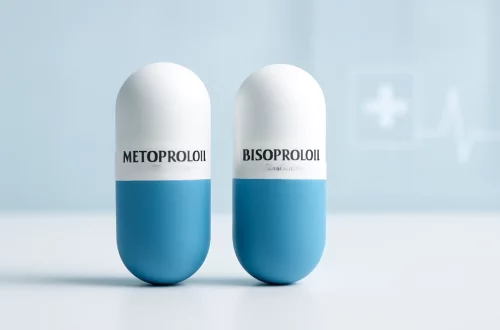
Essential Guide to RX Vitamins for Pets: Boost Your Furry Friend’s Health
Maintaining the health of our beloved pets is a priority for every pet owner. Just like humans, pets require a balanced diet, regular exercise, and sometimes additional support to thrive. One avenue that has gained popularity in recent years is the use of RX vitamins specifically formulated for pets. These vitamins aim to bolster the immune system, support joint health, and enhance overall well-being. The growing awareness among pet owners regarding the importance of nutritional supplements reflects a larger trend towards preventive care in veterinary medicine. As pets age or face specific health challenges, the need for tailored nutritional support becomes even more critical.
The market for pet vitamins has expanded significantly, offering a variety of options, from general wellness to targeted formulations. It’s essential to approach this topic with careful consideration and knowledge. Understanding the specific needs of your pet, including their age, breed, and health status, is crucial when selecting the right vitamins. Moreover, the quality of the products and their ingredients should not be overlooked, as these factors can greatly influence the efficacy of the supplements you choose. With proper guidance, you can make informed decisions that will contribute positively to your furry friend’s quality of life.
Understanding the Role of Vitamins in Pet Health
Vitamins are organic compounds that are vital to the proper functioning of the body. Just like humans, pets require a range of vitamins to support various physiological functions. These essential nutrients play a critical role in maintaining energy levels, promoting healthy skin and coat, and enhancing the immune system. Vitamins can be broadly categorized into two groups: fat-soluble and water-soluble.
Fat-soluble vitamins, including A, D, E, and K, are stored in the body’s fatty tissues. These vitamins are crucial for processes such as vision, bone health, and blood coagulation. For instance, vitamin A is essential for maintaining good eyesight and skin health, while vitamin D is vital for calcium absorption, which contributes to bone strength.
On the other hand, water-soluble vitamins, such as the B-complex group and vitamin C, must be regularly consumed as they are not stored in the body. These vitamins are involved in energy production, red blood cell formation, and overall metabolic processes. For example, B vitamins support brain function and are crucial for energy production, while vitamin C is an antioxidant that helps in reducing inflammation.
When considering RX vitamins for pets, it’s essential to understand that not all animals require the same vitamin supplementation. Factors such as age, breed, and existing health conditions can influence the specific nutritional needs of your pet. For instance, senior dogs may benefit more from joint support vitamins, while active breeds might require additional energy-boosting nutrients.
Always consult with a veterinarian to determine the appropriate vitamins for your pet’s unique needs. They can provide guidance on the best formulations and dosages, ensuring that your pet receives the optimal support for their health and well-being.
Types of RX Vitamins for Pets
The market offers a wide range of RX vitamins tailored to the specific needs of pets. These can generally be categorized into several types based on their intended purpose.
1. **Multivitamins**: These are designed to provide a comprehensive blend of essential vitamins and minerals that may be lacking in a pet’s diet. They are ideal for pets on commercial diets that may not meet all their nutritional requirements. Multivitamins can support overall health, boosting the immune system and enhancing vitality.
2. **Joint Health Supplements**: These vitamins typically contain ingredients such as glucosamine, chondroitin, and MSM, which are known to support joint health and mobility. Older pets or those with joint issues may particularly benefit from these supplements, helping to alleviate discomfort and improve their quality of life.
3. **Skin and Coat Supplements**: Formulated with fatty acids, vitamins A, E, and biotin, these vitamins are aimed at promoting healthy skin and a shiny coat. Pets with allergies or skin sensitivities may find relief and improved skin condition with these targeted supplements.
4. **Digestive Health Probiotics**: Probiotics are beneficial bacteria that support gut health. They can help with digestive issues and improve nutrient absorption. Pets that experience gastrointestinal disturbances may particularly benefit from these formulations.
5. **Immune Support Vitamins**: Many vitamins, including C and E, are known for their antioxidant properties, helping to strengthen the immune system. These supplements are particularly helpful for pets recovering from illness or those exposed to environmental stressors.
When selecting RX vitamins, it’s essential to choose high-quality products from reputable manufacturers. Look for those that have undergone rigorous testing for safety and efficacy. Additionally, consider your pet’s specific health needs and consult with a veterinarian to tailor a vitamin regimen that best supports their health.
How to Choose the Right RX Vitamins for Your Pet
Choosing the right RX vitamins for your pet can be a daunting task given the plethora of options available. However, there are several key factors to consider that can help simplify your decision-making process.
First and foremost, consult with your veterinarian. They can assess your pet’s individual health needs and recommend specific vitamins or supplements that align with their dietary requirements. A veterinarian will consider your pet’s age, breed, weight, and any existing health conditions before making a recommendation.
Next, evaluate the ingredients. Look for vitamins that contain high-quality, natural ingredients without fillers or artificial additives. Reading labels can provide insight into the product’s nutritional content and its intended benefits. Additionally, ensure that the vitamin is formulated specifically for pets, as human vitamins may not be suitable and could potentially be harmful.
Another important aspect to consider is the delivery method. RX vitamins come in various forms, including chewables, powders, and liquids. Choose a format that your pet will readily accept, as compliance is crucial for the effectiveness of any supplement. For instance, if your pet is a picky eater, a flavored chewable might be more appealing than a powder that needs to be mixed into food.
Finally, monitor your pet’s response to the vitamins. After starting a new regimen, observe any changes in behavior, energy levels, or overall health. It may take some time to notice improvements, but significant changes or adverse reactions should prompt a consultation with your veterinarian.
By taking a thoughtful approach and prioritizing your pet’s unique needs, you can find the right RX vitamins that will effectively support their health and enhance their quality of life.
The Importance of Regular Veterinary Check-ups
Regular veterinary check-ups play a crucial role in maintaining your pet’s overall health. These visits provide an opportunity for veterinarians to conduct comprehensive health assessments, which can identify potential issues before they escalate. Routine examinations often include physical assessments, vaccinations, and discussions about your pet’s diet and lifestyle.
During these check-ups, you can address any concerns regarding your pet’s health, including questions about vitamin supplementation. Your veterinarian can offer personalized recommendations based on your pet’s specific needs and lifestyle, ensuring that they receive the proper care and nutrition.
Moreover, regular vet visits allow for ongoing monitoring of your pet’s health status. This is particularly important for aging pets or those with chronic conditions, as their health needs may change over time. Your veterinarian can adjust dietary recommendations and vitamin supplementation as necessary, helping to maintain optimal health.
In addition to health assessments, routine veterinary visits often include preventive care measures, such as vaccinations and parasite control. These practices are essential for protecting your pet from various diseases and health threats, reinforcing the importance of proactive health management.
In summary, regular veterinary check-ups are integral to your pet’s health care routine. They provide a platform for open communication about your pet’s needs and allow for timely adjustments to their health plan, including their vitamin regimen.
**Disclaimer: This article is for informational purposes only and should not be considered medical advice. Always consult your veterinarian for health concerns regarding your pet.**




